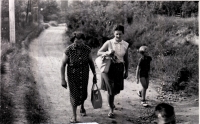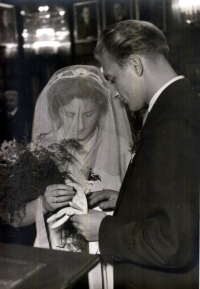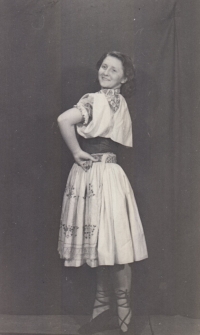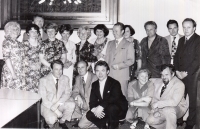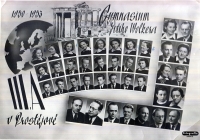When Stalin died, we dressed up to school

Download image
Olga Rozehnalová, née Hubrová, was born on 14 February 1935 in Prostějov as the older of two children. She and her parents, Josef Hubr and Anna Hubrová, née Frantová, lived in Prostějov. Her father worked for the municipal police and her mother ran a tailor’s shop in their flat in Českobratrská Street. Her father had to enlist as part of the mobilisation in 1938, and the witness remembers waving to him from her mother’s arms. He soon returned home and continued to work in the police force. He was a member of the Social Democrats, later merged with the Communist Party, and after a few years he was expelled. The family survived the World War II without much drama, which awaited them at its end. Prostějov was bombed by the Allies and the house where the Hubrs lived was bombed, as were several other places in the neighbourhood. The fifties were also a test of life for the witness. For laying flowers at the Masaryk monument, she was expelled from grammar school with her entire class and had to go to work. Her father also lost his job. She did not return to school, but worked as an invoice clerk and accountant, and later in financial control. She and her husband Jiří have two children, and at the time of the recording in 2022, the witness lived in Prostějov.
